The Washington D.C. Metropolitan Area is one of the largest hubs of human trafficking in the United States, a result of a mix of characteristics unique to the region: its location along the I-95 travel corridor, a sizeable immigrant population, and a large number of foreign diplomats who employ foreign domestic staff. As a result of heightened anti-immigrant rhetoric, immigrant victims of human trafficking are even more afraid of being deported and thus less likely to report their perpetrators.
Immigrants are particularly vulnerable to human trafficking and face unique obstacles in seeking legal assistance. Immigrants are often unwilling or unable to report their abusers due to fear of deportation, isolation by their traffickers, the inability to speak English, and unawareness of their rights and available services. Unscrupulous employers, family members, and criminal groups often prey on immigrants’ fears to hold them in conditions of forced labor and/or forced commercial sex.
To address these vulnerabilities, Congress passed the Trafficking Victims Protection Act (TVPA) in 2000. The TVPA created a new visa category known as the “T visa,” which offers the possibility of legal status to survivors of human trafficking.
To qualify for a T visa, an immigrant must establish:
- That s/he has been a victim of a severe form of trafficking in persons (which can be either sex or labor trafficking, and also includes attempted trafficking);
- That s/he is physically present in the United States on account of that trafficking;
- That s/he has cooperated with law enforcement to investigate or prosecute the trafficker(s); and
- That s/he would suffer hardship if deported from the United States.
The T visa was designed to encourage immigrant survivors of human trafficking to come forward and report the crimes committed against them, keeping in mind that one of the most potent threats against these survivors is the threat of deportation.
For example, Erlinda* came from the Philippines to work as a domestic worker for a diplomat in Washington D.C. She traveled on a visa for domestic workers of foreign dignitaries. However, upon her arrival in Washington D.C., Erlinda’s employer confiscated her identity documents and forced her to work around the clock, under constant surveillance and threat of deportation. Erlinda’s visa was tied to her employer, and she would have immediately lost legal status if she left her employer’s home—a fact her employer reminded her of constantly. Erlinda was never paid and was forced to sleep on the floor.
Despite these threats, Erlinda finally found the courage to leave her employer’s home. With Ayuda’s help, she applied for and was granted a T visa. Through the process, she learned about her rights in the United States and cooperated in an investigation of her employer. She was able to reunite with her family members and is now rebuilding her life.
Stories like Erlinda’s are all too common in the Washington D.C. area. However, due to anti-immigrant rhetoric and heightened immigration enforcement, immigrants in Erlinda’s situation are even more afraid of immigration consequences and are therefore more vulnerable to human trafficking and less likely to report their traffickers. As a result, human trafficking victims are not receiving legally mandated protections and perpetrators are enjoying impunity for their actions.
*Name changed to protect client’s identity
Katherine Flannery is a New York-barred attorney, currently in her second year of an Equal Justice Works Crime Victims Justice Corps Fellowship. Katherine Soltis is a Supervising Immigration Attorney and trafficking expert. Both work for Ayuda, the only nonprofit organization in the District of Columbia, Maryland, and Virginia that offers a full range of immigration and family law assistance, social services, and language support for low-income immigrants from anywhere in the world.

